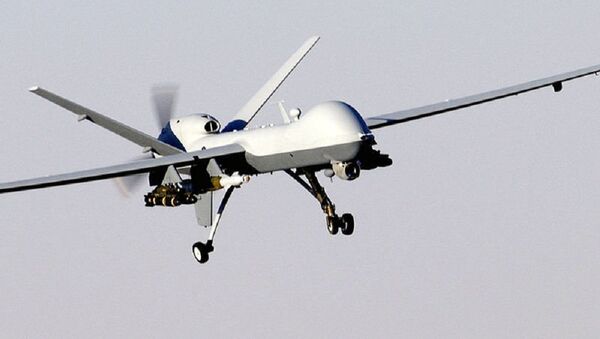US forces routinely classify bystanders killed in its Afghanistan drone strikes as "enemies killed in action," even when they are not the intended targets of the strikes, according to a source and to documents obtained by the Intercept.
But the Geneva Conventions, in Article 50 of Additional Protocol I, states that "in case of doubt whether a person is a civilian, that person shall be considered to be a civilian."
That position was supported by a document from the International Committee of the Red Cross [ICRC]in 2009:
"All feasible precautions must be taken in determining whether a person is a civilian and, if so, whether that civilian is directly participating in hostilities. In case of doubt, the person must be presumed to be protected against direct attack. … In case of doubt as to whether a specific civilian conduct qualifies as direct participation in hostilities, it must be presumed that the general rule of civilian protection applies."
However, while the United States signed Protocol I, it was not among the 174 countries to ratify it. Additionally, the legal opinion of the Red Cross has been controversial within the context of the US defense establishment.
"The [ICRC] teaches the presumption of civilian status in cases of doubt, and its teaching is consistent with the purpose of international humanitarian law, which is to protect civilians from attack unless they are taking a direct part in hostilities," Hina Shamsi of the ACLU's National Security Project, told the Intercept.
"What the US is essentially presuming is that the people it has killed were taking a direct part in hostilities. In other words, in assessing the lawfulness of its lethal force, it’s turning the exception into the rule."
The Department of Defense, in the first ever department-wide manual in the history of the DoD, argues that customary international law does not require classifying people as civilians by default.
"A legal presumption of civilian status in cases of doubt may demand a degree of certainty that would not account for the realities of war," the document states. It also claims that "under customary international law, no legal presumption of civilian status exists for persons or objects."
While the Defense Department claims that a presumption of civilian status is not part of "customary international law," at least one member of the defense establishment has said the opposite.
Michael Schmitt, a professor at the US Naval War College and 20-year veteran of the Air Force, endorsed the presumption of civilian status as a key part of "customary international law" in the course of arguing against strict Red Cross legal guidance on which members of a hostile group may be attacked in combat, the Intercept reported.
Schmitt wrote in an article in the Harvard National Security Journal:
"International humanitarian law already accounts for situations of doubt as to whether an individual is a civilian. Article 50.1 of Additional Protocol I, a provision generally deemed reflective of customary international law, provides that "'[i]n case of doubt whether a person is a civilian, that person shall be considered to be a civilian.'"






